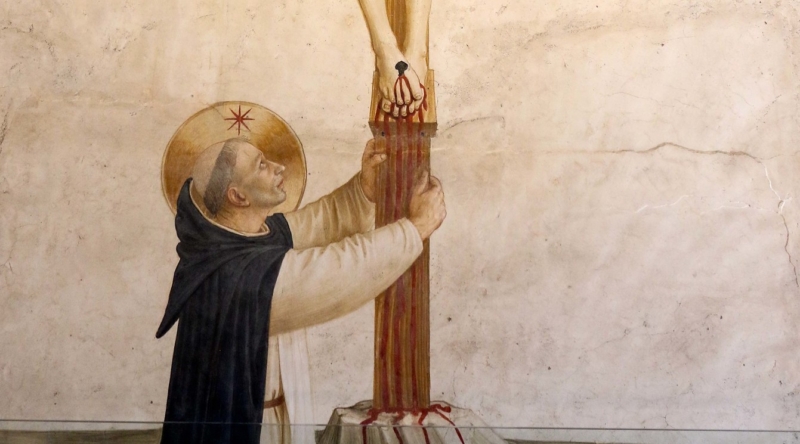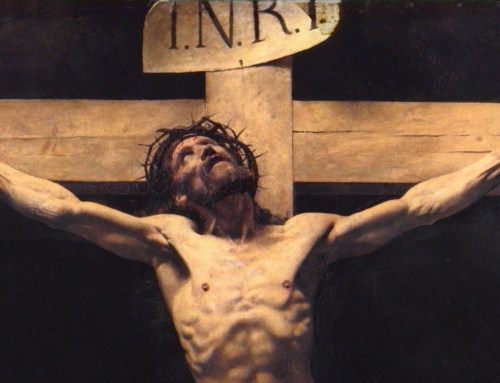“He went away sorrowful; for he had great possessions” (Mt 19:22). The sorrow of the rich young man in response to Jesus’ call has long been countered by the joy of a vocation to the religious life. To guide me on to the way to joy rather than sorrow, my acceptance letter to the Dominican novitiate advised me to meditate on this passage—to reflect on what the Lord Jesus was calling me to do, “if [I] would be perfect . . .” (Mt 19:21).
And, as a young man preparing to enter religious life, I thought that I was walking away glad. I was eager to get rid of the (few) possessions I owned—especially in exchange for a treasure in heaven. It seemed simple, really: I was not attached to my earthly possessions like the rich young man—I was not going to go away sorrowful. But then I arrived at the novitiate, having seemingly done all that Jesus said: I went, I got rid of my possessions, and I entered religious life to follow him . . . but I was not perfect. In fact, I seemed to be much the same as before. Lo, had I not left everything and followed him? (cf. Mt 19:27)
Well, no. It turns out that the Gospel is more than “do this one nice thing this one time.” In his homily on Luke 9:23–27, where our Lord explicitly says that to be his disciple one must deny himself and take up his cross, Saint Gregory the Great expounds, “Some may not find it difficult to abandon their possessions, but it is extremely difficult to abandon ourselves. Renouncing what we have is not so much; renouncing what we are amounts to a great deal” (Forty Gospel Homilies, Homily 32).
It is easy to put ourselves in the place of the rich young man and think that we are only one step from perfection (and that the step is something that we can easily climb on our own). But when do we actually get to that last step before perfection? “But of that day and hour no one knows” (Mt 24:36). Even if, led by grace, we give away our belongings as the rich young man could not, are we perfect? “If you would be perfect, go, sell . . . and come, follow me” (Mt 19:21).
Maybe I had left behind the things that I had owned in the world, but I still hold on to an awful lot: my pride, my expectations and plans, my self-reliance, as though I had called myself to religious life, seeking what I think would be perfect. But luckily, my version of “perfection” is not real, and religious life—through my brothers, our common life, prayer, and study—has shown me all that I have refused to hand over to Jesus.
The Lord does not want compliance, as though we had to check “obedience to his commandments,” “volunteer hours,” and “being generous” off our list in order to get to heaven. Rather, the Lord wants our hearts. He wants our minds. He wants us to share totally in his boundless charity as he conforms us to himself. He does not want us as though he were a greedy owner seeking to satiate his avarice, but as a bridegroom longing for his spouse. In Christ, he has given himself to us.
In daily life—in religious life—God presents the cross to us. Oftentimes we do not see it, but it is given in small splinters to slowly unburden us of our possessions—our hoarded self-love and all that we hold onto for our own self-interest—and to conform us more to Christ.
God gives us (and moves us to ask for) the eyes to see our daily cross. When a cross comes, if we would not turn away sorrowful, God gives us the grace to pick up that cross in love.
✠
Photo by Fr. Lawrence Lew, O.P. (used with permission)







